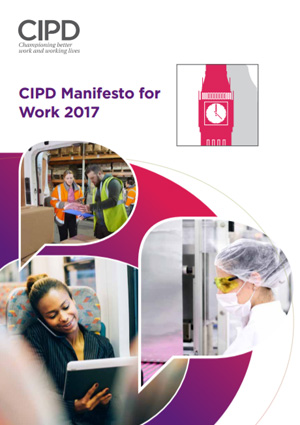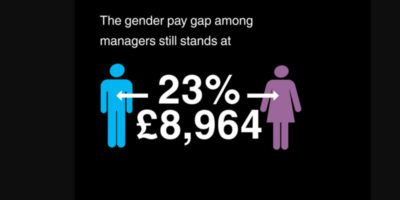Laura Harrison is Strategy and Transformation Director at the CIPD, the professional body for HR and people development, and leads its strategy, research and public policy teams. She has particular interest in the future of work and HR, organisation development and change. Laura passionately believes that the future of work is human and is interested in exploring how organisations can create value for all their stakeholders for long term societal advancement as well as economic growth.

“…caring responsibilities don’t lie only with mothers, but also with fathers, sons, daughters, siblings and friends. So, we’d all benefit from more family friendly, flexible approaches to work…”
Laura, please can you tell us about your career to date and what made you want to work in HR?
I started my career working in consultancy – with Price Waterhouse (as it was then!) and then EY. Most of the clients were HR directors and I used to get frustrated with being a step removed from the true outcomes of my work. There’s always a fear that you’ve spent weeks on a report or proposal only for it to gather dust on a shelf somewhere.

Please can you tell us what your role at the CIPD involves on a day to day basis?
My day is usually spent in meetings – back to back! And frantic, intermittent attempts to keep on top of emails, writing and reading. I’m usually involved in discussions about key strategic projects, our work to raise our profile and our research (my favourite part of the job – it’s incredibly satisfying to see how the CIPD is influencing big conversations about the world of work, and HR’s responsibility to champion better work and working lives).
But also, operational issues; staffing, budgets and reporting. That’s my least favourite part of the job, as I tend to feel I’m always behind. Quite honestly, it’s not a strength!
What are your views about the myth that it’s acceptable for women’s careers to go unsupported when they become mothers?

In post-Brexit Britain, with all the current and anticipated skills shortages, organisations need women’s talents and potential more than ever. It’s time for business to wake up to the fact that it’s worth working hard and putting in the extra effort to support women back into work after maternity leave and also to start recognising that caring responsibilities don’t lie only with mothers, but also with fathers, sons, daughters, siblings and friends. So, we’d all benefit from more family friendly, flexible approaches to work.
There’s another pervasive myth that women who don’t become mothers are somehow ‘selfish’. How do we tackle this?
It’s absolutely crazy that women are still judged this way. As though we were born to give and nurture, and might spontaneously combust if we don’t fulfil our biological and social destiny. I think that there’s only one solution which is to continually call out these kind of prejudices when we encounter them. Not skip over them or cough in an embarrassed way when they surface.
Unfortunately, this is hard for many women, who’ve predominantly been raised to drive for consensus not conflict and feel uncomfortable challenging people directly and for many people, this topic can be a personally sensitive one that we need to be more mindful of. But if we want equality, we have to put our heads above the parapet. You only get so much by asking nicely, or hoping that others will pick up the baton for you.
In your opinion, what else needs to be done to redress the balance between initiatives to support working mothers and working fathers?
At the CIPD, we’re calling for action from both government and employers.
Although the recent doubling of free childcare for 3–4-year-olds is a positive step in the right direction, there is a significant gap in childcare provision between the end of maternity or shared parental leave and the start of free education or childcare. Much more therefore still needs to be done to help working parents remain and progress at work, whilst also juggling caring responsibilities.

- Help increase the uptake and range of flexible working opportunities across the economy by supporting innovative campaigns by professional and sector bodies and social enterprises.
- Develop a national strategy on childcare, aimed at delivering improved access to good-quality, affordable childcare. In particular, this must encompass a way of closing the current gap in the availability of free childcare for children aged 0-2.
But while Government action may help catalyse change, employers shouldn’t wait for intervention to take action – to be seen as leading the way as an inclusive employer will pay dividends in attracting a diverse range of individuals and respect from industry peers.
Flexible working is a critical aspect of workplace inclusion and, by giving employees a wide range of working options and regularly reviewing how their provision fits with employee need, employers can expect generally happier, healthier and therefore more productive employees.
Flexible returnships are being encouraged by Government and welcomed in the corporate world, but is there a danger organisations that create returnships are using them as a panacea for all corporate ills relating to mothers / women and they are missing chances to drive retention?
Yes, of course this is a risk. It’s an example of something that can be helpful, but it’s not a solution of itself. That comes from being prepared to champion equality across your organisation, relentlessly.
It’s about a constant drum beat of questions: Who’s being promoted? Why so few women? Are we demanding gender balance from recruitment agencies? Or conducting ‘blind’ recruitment? Are we setting women returning from maternity leave and men from shared parental leave up to succeed or fail? And so on, and on.
Over and above women’s networks, mentoring, role models, returnships, unconscious bias training etc., what genuinely new innovation are you seeing in this space?
I think the next innovation will come from pushing different conversations at work, rather than specific practices. My sense is we’ve been tempted to push the ‘diversity’ agenda wholly as ‘win-win’ without adequately acknowledging, or skilling up for, the challenges around making a workforce more inclusive to enable a diverse group of people to achieve their best diverse.
For example, more diverse teams ultimately may be more innovative if the environment is inclusive and appreciative of difference. But in the short term, they may experience more conflict – and we tend to shy away from conflict and seek ways to get back to our ‘tribe.’
Importantly, this isn’t just a fight for equality from an under-represented group. Support from across the entire workforce, regardless of identity, gender or circumstance is absolutely crucial to achieving the step change we need.
What’s coming up next for you and the CIPD?
My husband and I are very much enjoying being at a stage of life where we can have the odd lie in or weekend outing together child free! My work at the CIPD at the moment is really exciting, some very big ideas to land, such as implementing a new professional standards framework that puts the ‘human’ back into human resources. But it won’t be for ever.
One thing that’s on my mind is ten years from now my kids will have left home and I’m very bad at not being busy. So, every now and again my mind starts to wander in the direction of retraining or trying something new. I love working, and want to carry on ‘til I’m old and have maximum licence to be mischievous.





